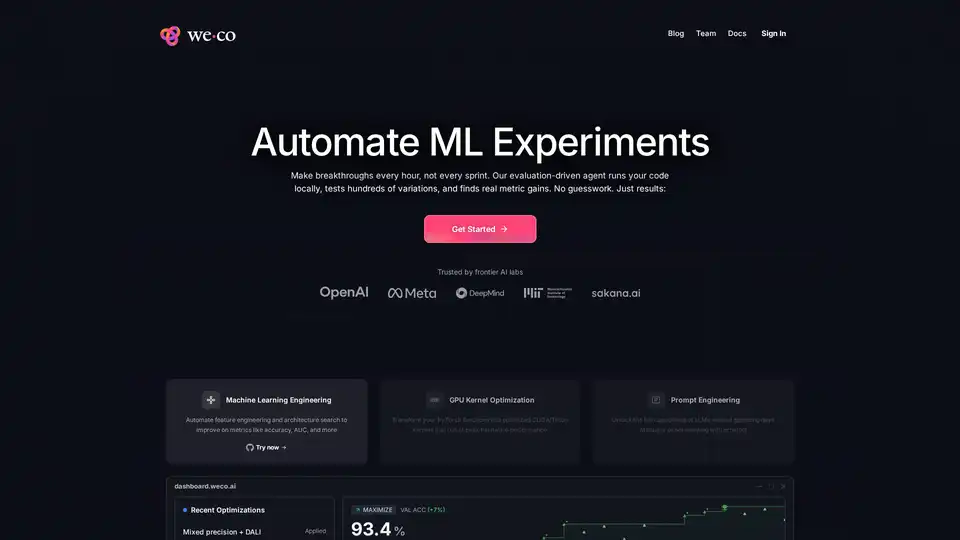
Weco AI
Overview of Weco AI
What is Weco AI?
Weco AI is an advanced machine learning optimization platform that automates ML experiments using AIDE ML technology. This innovative system employs large language model-powered agents to systematically optimize machine learning pipelines through evaluation-driven experimentation.
How Does Weco AI Work?
The platform operates through a sophisticated three-step process:
1. Local Evaluation System
Weco AI runs your code locally on your own infrastructure, ensuring data privacy while maintaining full control over your ML environment. The system connects to your evaluation scripts through a simple command-line interface.
2. Automated Experimentation
Using AIDE ML agents, Weco systematically tests hundreds of code variations, including:
- Architecture modifications (model structure changes)
- Hyperparameter optimization (learning rates, batch sizes)
- Data augmentation techniques (CutMix, RandAugment)
- Performance optimizations (mixed precision, CUDA kernels)
- Training methodology improvements (scheduler changes, regularization techniques)
3. Metric-Driven Optimization
The system continuously evaluates performance against your specified metrics (accuracy, AUC, throughput, etc.) and evolves solutions based on empirical results, creating a tree search of successful variations.
Core Features and Capabilities
🚀 Automated ML Engineering
- Feature engineering automation: Systematically explores and implements feature transformations
- Architecture search: Tests various model architectures and configurations
- Hyperparameter optimization: Explores optimal parameter combinations automatically
⚡ GPU Kernel Optimization
- CUDA/Triton kernel generation: Transforms PyTorch functions into optimized GPU kernels
- Hardware performance maximization: Achieves peak hardware utilization
- Mixed precision implementation: Automatically implements FP16/FP32 mixed training
🤖 Prompt Engineering Automation
- LLM optimization: Automatically experiments with prompt variations
- Systematic testing: Evaluates hundreds of prompt combinations
- Performance tracking: Measures and compares LLM output quality
Practical Applications and Use Cases
Weco AI excels in multiple ML scenarios:
Research and Development
- Academic research: Accelerates ML research by automating experimentation
- Industry R&D: Speeds up product development cycles
- Benchmark optimization: Improves performance on standardized benchmarks
Production ML Systems
- Model performance improvement: Increases accuracy and efficiency of production models
- Infrastructure optimization: Reduces computational costs through better resource utilization
- Deployment readiness: Ensures models are optimized for production environments
Specialized Optimization Tasks
- Computer vision models: Optimizes CNNs, transformers, and other vision architectures
- NLP systems: Improves language model performance and efficiency
- Reinforcement learning: Optimizes RL algorithms and environments
Technical Implementation
The platform supports multiple programming languages and frameworks:
- Primary language: Python (PyTorch, TensorFlow, JAX)
- Additional support: C++, Rust, JavaScript
- Framework compatibility: Works with major ML frameworks and custom implementations
- Hardware flexibility: Supports various GPU architectures (NVIDIA, AMD, Apple Silicon)
Performance and Results
Weco AI has demonstrated significant improvements across various benchmarks:
- CIFAR-10 validation: Achieved +7% accuracy improvement over baseline
- ResNet-18 optimization: 2.3× speedup through mixed precision and DALI implementation
- OpenAI MLE-Bench: 4× more medals than next best autonomous agent
- METR RE-Bench: Outperformed human experts in 6-hour optimization challenges
Who is Weco AI For?
Target Audience
- ML Engineers: Professionals looking to automate and optimize their workflows
- AI Researchers: Academics and researchers seeking to accelerate experimentation
- Data Scientists: Practitioners wanting to improve model performance efficiently
- Tech Companies: Organizations aiming to scale their ML operations
Skill Requirements
- Intermediate ML knowledge: Understanding of machine learning concepts
- Programming proficiency: Comfort with Python and ML frameworks
- Experimental mindset: Willingness to embrace automated experimentation
Getting Started with Weco AI
The platform offers a straightforward onboarding process:
- Installation:
pip install weco - Configuration: Point to your evaluation script
- Execution: Run optimization commands
- Monitoring: Watch real-time progress through the dashboard
Average onboarding time is under 10 minutes, making it accessible for teams of all sizes.
Why Choose Weco AI?
Competitive Advantages
- Privacy-first approach: Your data never leaves your infrastructure
- Cost efficiency: Achieves more with fewer computational resources
- Systematic methodology: Based on proven AIDE ML research
- Proven results: Demonstrated success across multiple benchmarks
- Open-source foundation: Core technology is open for inspection and contribution
Comparison with Alternatives
Unlike one-shot code generation tools, Weco AI employs systematic evaluation and iteration, ensuring measurable improvements rather than speculative changes.
Pricing and Accessibility
Weco AI uses a credit-based pricing system:
- Free tier: 20 credits (approximately 100 optimization steps)
- No credit card required for initial usage
- Transparent pricing: Clear cost structure based on optimization steps
The platform represents excellent value for ML teams looking to accelerate their research and development cycles while maintaining control over their data and infrastructure.
Best Alternative Tools to "Weco AI"
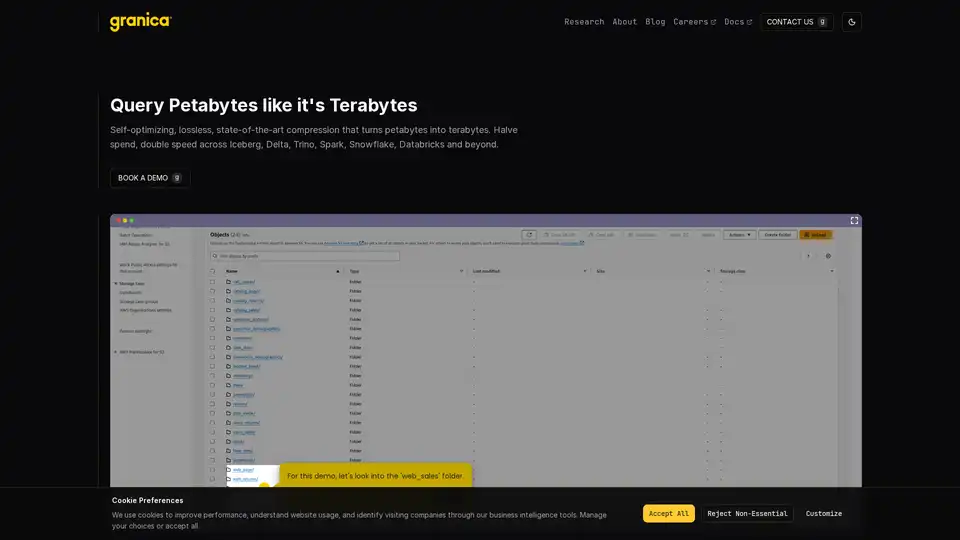
Granica uses AI-driven, lossless compression to shrink petabytes of data into terabytes, reducing storage costs and accelerating query performance across various data platforms like Snowflake, Databricks, and more.

TestGrid is an AI-powered end-to-end testing platform that simplifies software testing with features like codeless testing, cross-browser testing, and mobile app testing. It helps teams release software faster and ensure quality.
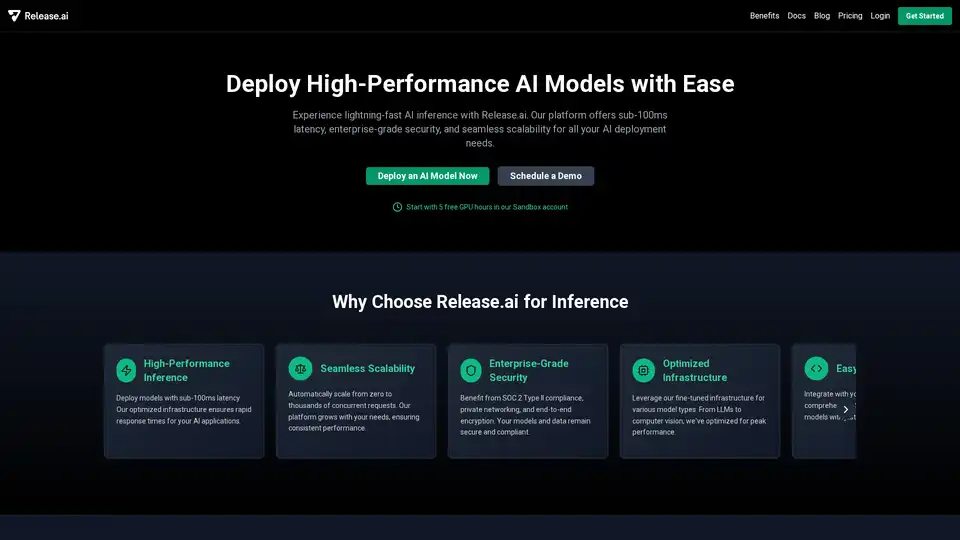
Release.ai simplifies AI model deployment with sub-100ms latency, enterprise-grade security, and seamless scalability. Deploy production-ready AI models in minutes and optimize performance with real-time monitoring.
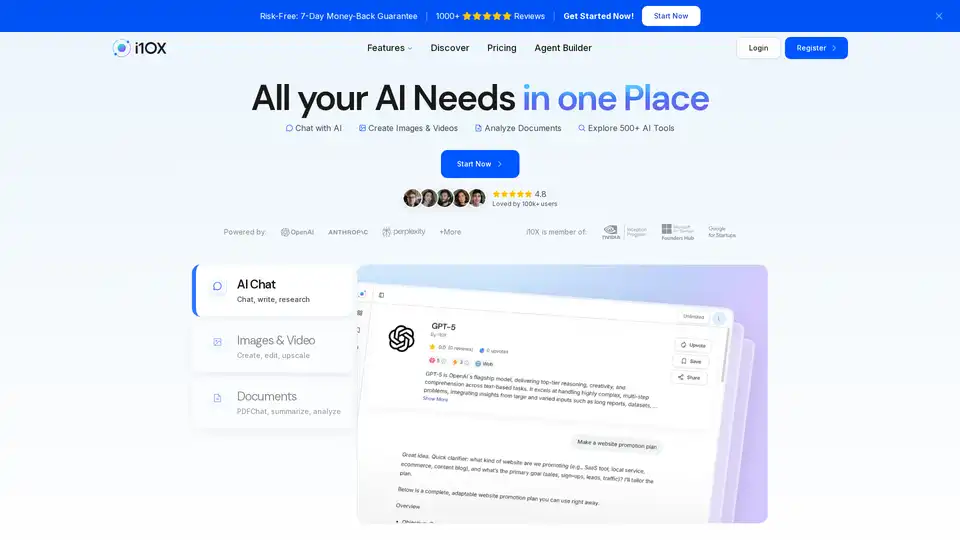
i10X is an AI agent marketplace offering 500+ AI tools for chat, image generation, document analysis, and more. Save time and costs with this all-in-one AI workspace. Try it risk-free!
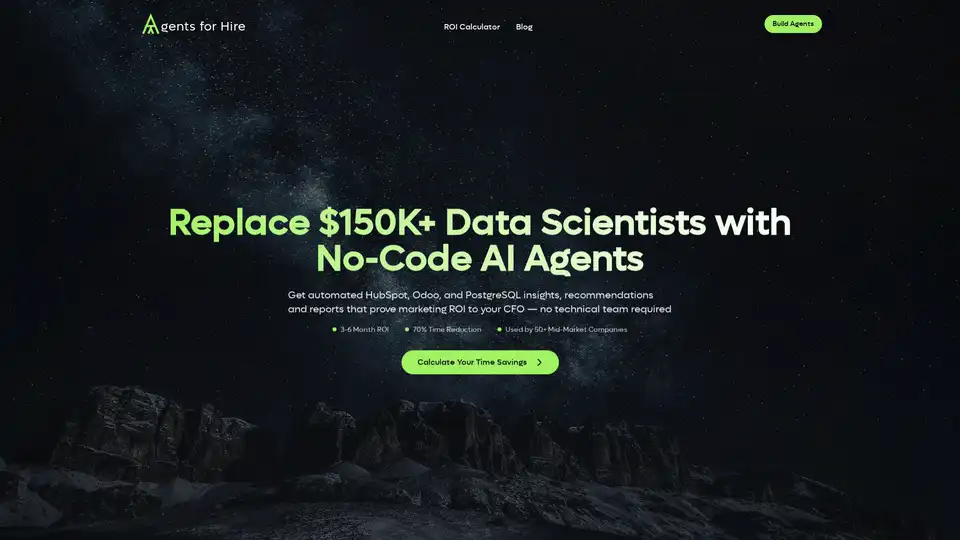
Replace $150K+ Data Scientists with No-Code AI Agents. Get automated HubSpot, Odoo, and PostgreSQL insights, recommendations and reports that prove marketing ROI to your CFO.
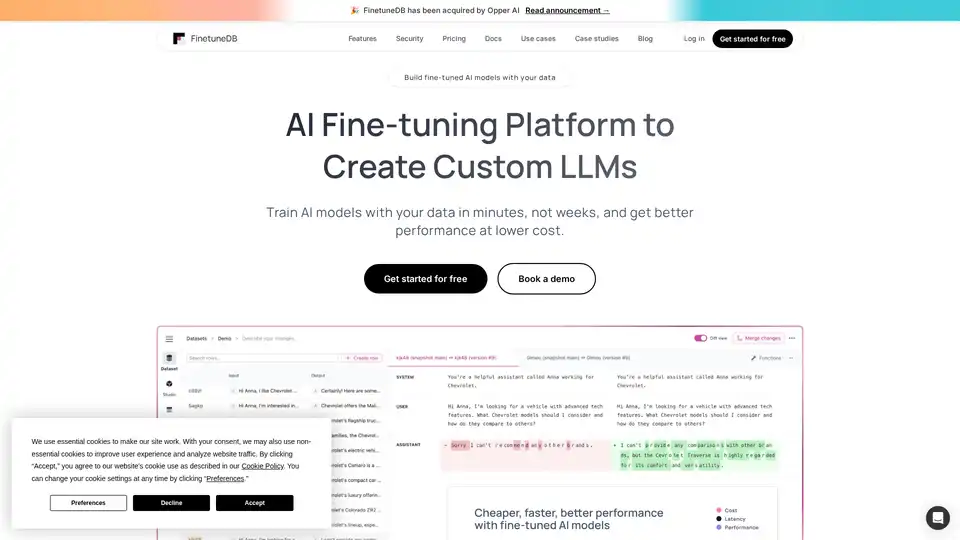
FinetuneDB is an AI fine-tuning platform that lets you create and manage datasets to train custom LLMs quickly and cost-effectively, improving model performance with production data and collaborative tools.

Substrate is the ultimate platform for compound AI, offering powerful SDKs with optimized models, vector storage, code interpreter, and agentic control. Build efficient multi-step AI workflows faster than ever—ditch LangChain for streamlined development.
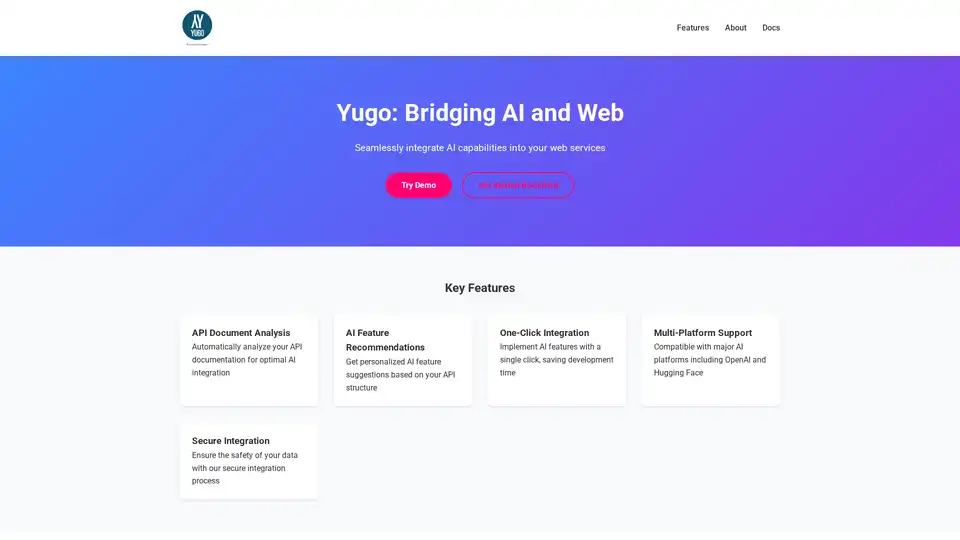
Yugo simplifies AI integration into web services with automated API analysis, personalized feature recommendations, and one-click implementation, empowering developers to build advanced applications efficiently.
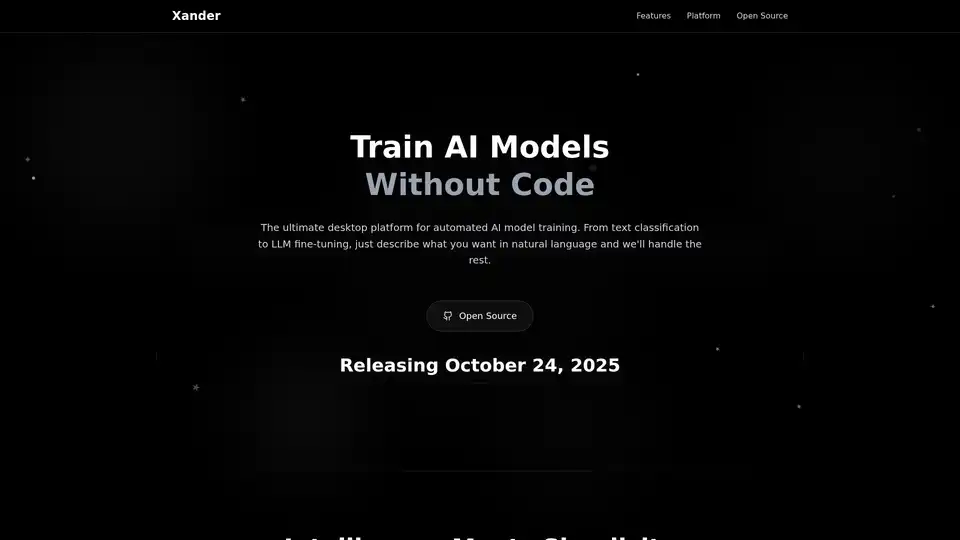
Xander is an open-source desktop platform that enables no-code AI model training. Describe tasks in natural language for automated pipelines in text classification, image analysis, and LLM fine-tuning, ensuring privacy and performance on your local machine.

ML Blocks is a no-code platform that enables users to build AI-powered workflows for image generation, editing, and analysis. Drag-and-drop tools make it easy to create automations using models like Stable Diffusion, with transparent pay-per-use pricing.

The AI Bucket stands as the preeminent directory for Best Ai tools, boasting an extensive collection of over 2000 AI tools across more than 20+ categories.

Sagify is an open-source Python tool that streamlines machine learning pipelines on AWS SageMaker, offering a unified LLM Gateway for seamless integration of proprietary and open-source large language models to boost productivity.
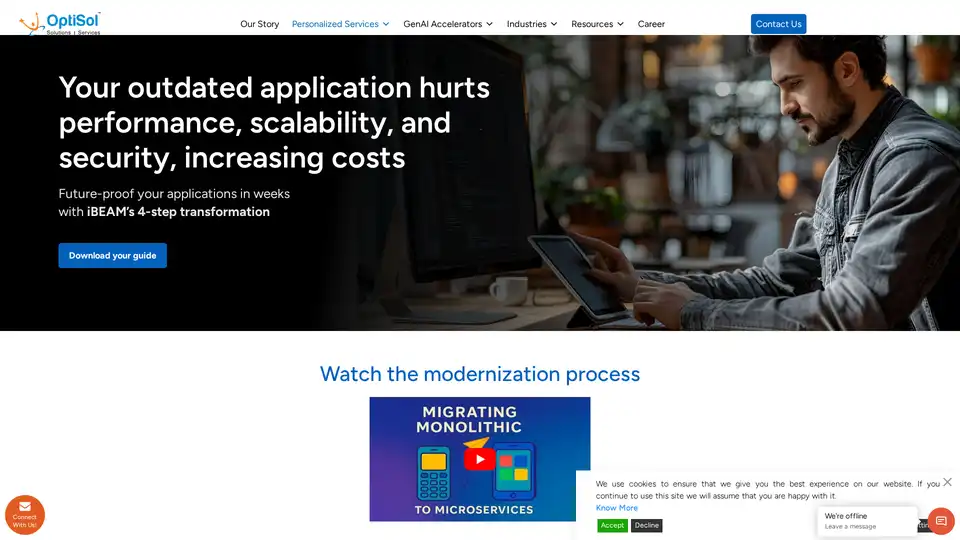
Modernize your legacy applications in weeks with iBEAM’s AI-powered 4-step process. Boost performance, cut costs, improve security, and ensure scalability with expert-led app transformation.
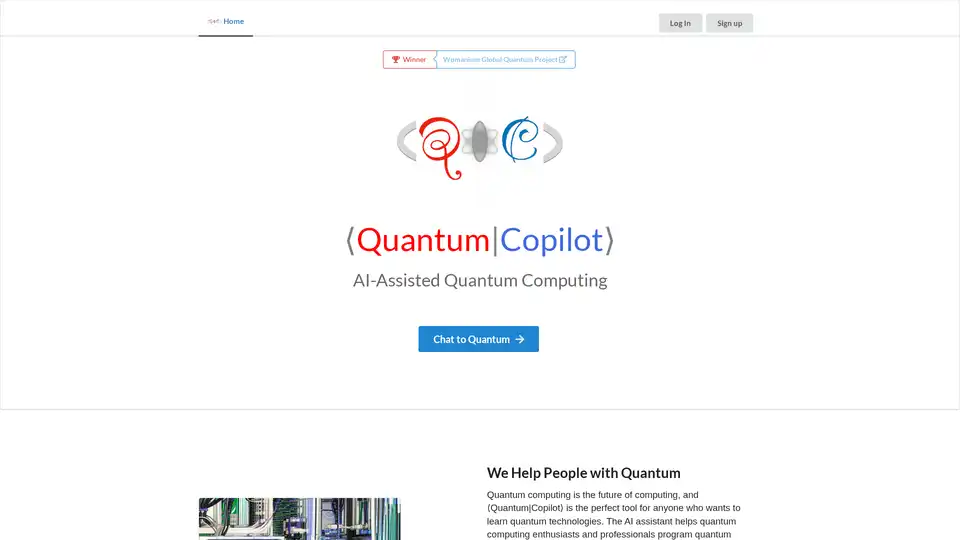
Quantum Copilot is an AI-assisted tool for quantum computing, enabling users to program in plain language, generate quantum code, simulate circuits, and run on real hardware for beginners and experts alike.
